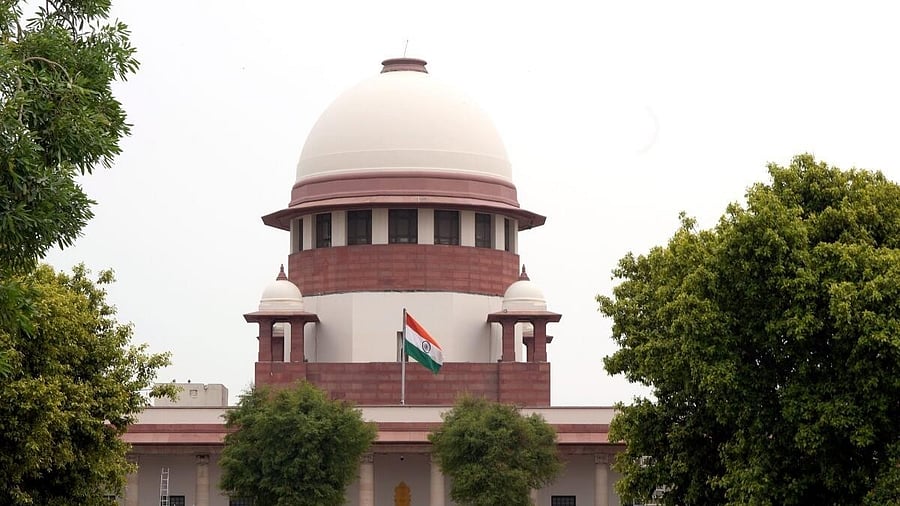
The Supreme Court of India.
Credit: PTI File Photo
New Delhi: The Supreme Court has said the court has an 'irrecusable duty to examine over implications' that a husband's relatives could be subject to in dowry harassment cases because an exaggerated version of the accusations are presented in court.
"Court has duty to consider the contentions that there is lack of specific allegations against the accused concerned to constitute the offences alleged against a relative or that the implication was nothing but an over implication to pressurise the family of the husband to yield to the demands. The courts cannot refrain from discharging the obligation to consider such contentions," a bench of Justices C T Ravikumar and Rajesh Bindal said.
In a judgment on November 26, the bench here quashed the 2020 FIR and the charge sheet filed against Payal Sharma, the wife of husband's cousin who used to live in Mohali, a different city, from Jalandhar where the daughter of complainant lived after the marriage.
The court said a petition could be filed under Section 482, CrPC for quashing the chargesheet even before framing of the charges and that it would not be in the interest of justice to reject the application merely on the ground that the accused concerned could argue legal and factual issues at the time of framing of charges.
"In matters like the one at hand when relatives not residing in the same house where the alleged victim resides, the courts shall not stop consideration by merely looking into the question where the accused is a person falling within the ambit of the expression ‘relative’ for the purpose of Section 498-A, IPC, but should also consider whether it is a case of over implication or exaggerated version solely to implicate such person(s) to pressurise the main accused," the bench said.
The court also said the term ‘relative’ has not been defined in the statute and, therefore, it must be assigned a meaning as is commonly understood. Therefore, normally, it can be taken to include, father, mother, husband or wife, son, daughter, brother, sister, nephew, niece, grandson or granddaughter of any individual or the spouse of any person. To put it shortly, it includes a person related by blood, marriage or adoption, the bench said.
On a careful consideration of FIR and the final report and materials, the bench said, "We have no hesitation to hold that there is nothing on record to suggest, even prima facie that they would constitute the alleged offences against the accused."
It said making the accused to face the trial based on such allegations or accusation would be nothing but an abuse of process of court.
Relying upon Preeti Gupta & Anr Vs State of Jharkhand & Anr (2010), the bench said, "We have no hesitation to hold that the observation of this court is in fact, sounding of a caution, against non-discharge of the duty to see whether implication of a person who is not a close relative of the family of the husband is over implication or whether allegation against any such person is an exaggerated version, in matrimonial disputes of this nature."
In the case, the marriage between the first accused-Amit Sharma and Vandana Sharma was solemnised on February 23, 2019.
On March 07, 2019, Amit left for Canada and Vandana stayed back in her matrimonial home at Jalandhar in Punjab with her in-laws. On December 02, 2019, Vandana also left for Canada.
On September 22, 2020, Amit approached the Family Court, Canada seeking divorce from his wife Vandana.
However, the instant FIR was lodged on December 03, 2020 by the complainant, the father of Vandana, alleging commission of various offences under the IPC against all the accused including the petitioner and her husband.
